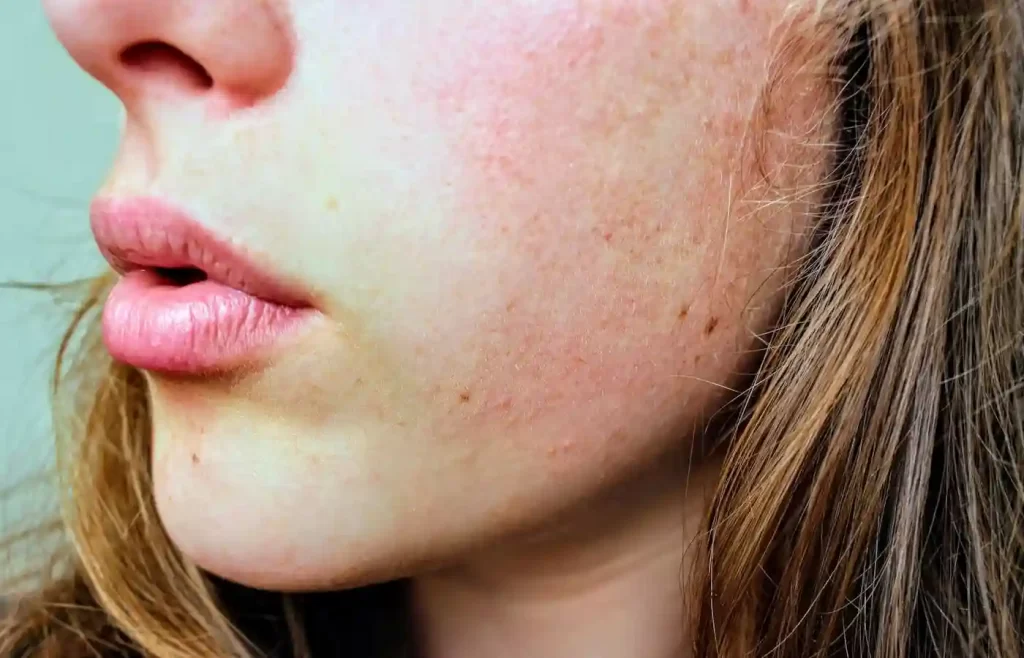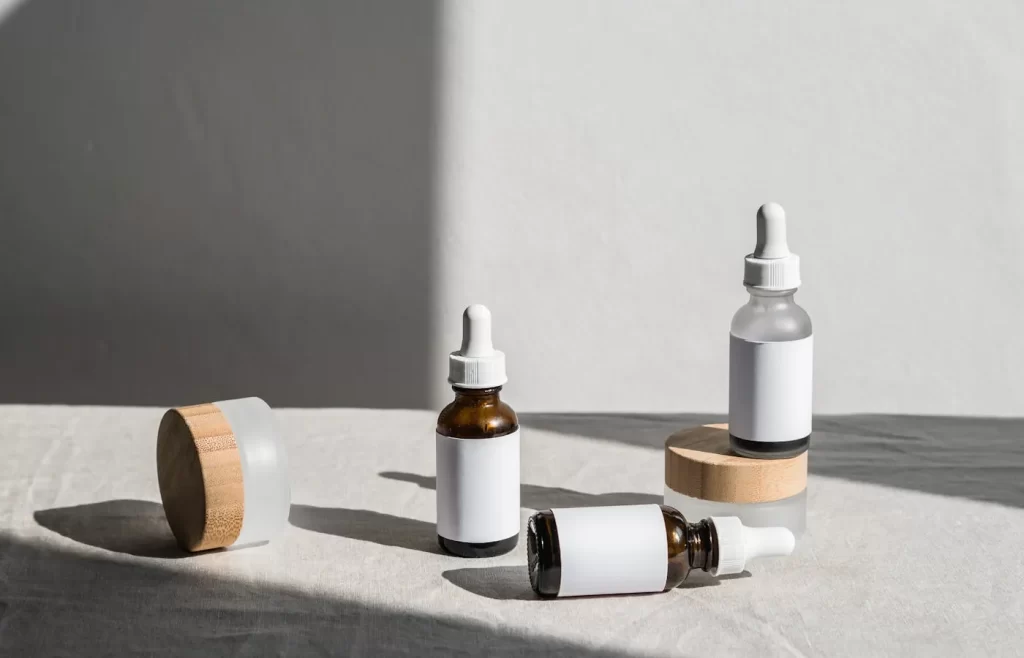
How To Repair Damaged Skin Barrier: Best Tips
Understanding how to repair a damaged skin barrier is crucial for maintaining healthy skin. Your skin barrier (aka your moisture barrier) acts like a shield, protecting you from harmful elements and keeping moisture locked in.
When this barrier is damaged, it can lead to dryness, redness, and irritation. Everyday factors like harsh skincare products, environmental stressors, and even over-cleansing can weaken this essential protective layer. Fortunately, with the right care, you can repair a damaged skin barrier and restore your skin’s health.
In this blog post, we’ll explore how to recognize a damaged skin barrier, the steps you can take to heal it, and what to avoid during the recovery process.
Related: 11 Of The Best Products For Skin Barrier Repair
How Long Does It Take to Repair a Damaged Skin Barrier?
Repairing a damaged skin barrier is not an overnight process; it requires patience and consistency. On average, it can take anywhere from a few days to a few weeks for your skin barrier to heal, depending on the severity of the damage and the care you provide.
Several factors influence the healing timeline:
- Severity of Damage: Minor damage, like mild irritation or dryness, might heal within a few days. More severe damage, such as that caused by harsh chemical peels or chronic over-exfoliation, can take several weeks.
- Skin Type: Individuals with sensitive skin may find that their skin barrier takes longer to repair compared to those with more resilient skin.
- Lifestyle and Environment: Factors like diet, hydration, stress levels, and environmental conditions (e.g., pollution, weather) play a significant role in the skin’s healing process.
Consistency in your skincare routine is crucial. Gentle, hydrating, and soothing products can expedite the repair process. Avoiding irritants and harsh treatments will also help your skin recover more quickly. Remember, every skin is unique, so the healing time can vary from person to person. The key is to be patient and maintain a supportive skincare regimen.

What Are the Signs of a Damaged Skin Barrier?
Recognizing the signs of a damaged skin barrier is essential for taking timely action to repair it. Here are some common symptoms to look out for:
- Dryness and Flakiness: When your skin barrier is compromised, it loses its ability to retain moisture, leading to dry and flaky skin.
- Redness and Irritation: A damaged barrier can make your skin more susceptible to irritants, resulting in redness and a feeling of irritation.
- Increased Sensitivity: You might notice that your skin becomes more sensitive to products and environmental factors that previously didn’t bother you.
- Tightness and Discomfort: Your skin may feel tight and uncomfortable, especially after cleansing or exposure to water.
- Breakouts and Inflammation: While breakouts can have many causes, a damaged skin barrier can exacerbate acne and inflammation.
- Rashes and Itching: Persistent itching and the development of rashes can be a sign that your skin barrier is struggling to protect you from irritants and allergens.
Differentiating between a damaged skin barrier and other skin conditions can be tricky. Conditions like eczema, psoriasis, and allergic reactions share some similar symptoms. If you’re unsure, it’s best to consult with a dermatologist for a professional diagnosis.
Understanding these signs allows you to adjust your skincare routine accordingly, focusing on gentle, soothing, and hydrating products to help your skin recover.
Can a Damaged Skin Barrier Repair Itself?
Yes, a damaged skin barrier can repair itself, but it needs the right environment and care. The skin’s natural processes, such as cell turnover and lipid production, facilitate this repair. Supporting these processes by avoiding irritants and staying hydrated can help speed up the recovery. If your skin doesn’t improve after a few weeks or shows severe damage, it’s best to consult a dermatologist.
Tips to Repair a Damaged Skin Barrier
Repairing a damaged skin barrier involves careful selection of skincare products and practices. Here are some effective tips:
1. Use Fragrance-Free Skincare Products
Avoid Irritants: Fragrances can cause irritation and further damage to a compromised skin barrier. Opt for fragrance-free products to minimize the risk of reactions.
2. Simplify Your Skincare Routine
Less is More: Reduce the number of products you use. Stick to a basic routine of gentle cleansing, moisturizing, and sun protection to avoid overwhelming your skin with too many ingredients.
3. Don’t Skip Sunscreen
Daily Protection: Use a broad-spectrum SPF 30 or higher every day. Sunscreen protects your skin from harmful UV rays, which can exacerbate damage and delay the healing process.
4. Use a Moisturizer that Contains Ceramides
Barrier Repair: Ceramides are lipids that help restore and maintain the skin barrier. Look for moisturizers containing ceramides to hydrate and strengthen your skin.
5. Try Face Basting with a Zinc Oxide Product (Diaper Rash Cream)
Soothing Relief: Zinc oxide has soothing and protective properties. Applying a thin layer of a zinc oxide product can help calm inflammation and protect the skin while it heals.
6. Slug with Petroleum Jelly
Lock in Moisture: “Slugging” involves applying a thick layer of petroleum jelly as the last step in your nighttime routine. This occlusive layer locks in moisture and supports the repair of your skin barrier overnight.
Implementing these tips can help accelerate the recovery of your damaged skin barrier, ensuring your skin returns to its healthy state more quickly and effectively.
What Should You Not Do When the Skin Barrier is Damaged?
When your skin barrier is compromised, it’s crucial to refrain from certain actions that can exacerbate the condition and impede the healing process. Here’s what you should avoid:
Stop Using Actives
- Pause Strong Actives: Retinoids, potent acids (AHA/BHA), and other active ingredients can further irritate and damage a compromised skin barrier. Temporarily discontinue their use until your skin has fully healed.
Steer Clear of Harsh Products
- Avoid Harsh Cleansers: Strong cleansers and harsh soaps can strip away essential oils and disrupt the skin barrier. Opt for gentle, non-stripping cleansers to cleanse your skin without causing further damage.
- Say No to Fragrance: Fragrances can be irritating, especially to sensitized skin. Choose fragrance-free products to minimize the risk of exacerbating irritation.
Don’t Ignore Symptoms
- Stay Alert: Persistent redness, itching, and discomfort are signs that your skin barrier needs attention. Ignoring these symptoms can prolong the healing process and potentially lead to more severe damage.
- Seek Professional Advice: If your symptoms persist or worsen, seek guidance from a dermatologist. They can provide personalized recommendations and treatments to address your skin’s specific needs.
In conclusion, understanding how to repair a damaged skin barrier is essential for restoring and maintaining healthy skin. By following the tips outlined in this guide and being mindful of what to avoid, you can support your skin’s natural healing processes and expedite the recovery journey.
Remember to prioritize gentle, soothing skincare products and practices, avoid harsh ingredients and environmental stressors, and seek professional help if needed.
With patience and consistency, you can successfully repair a damaged skin barrier and achieve a healthier, more radiant complexion.



